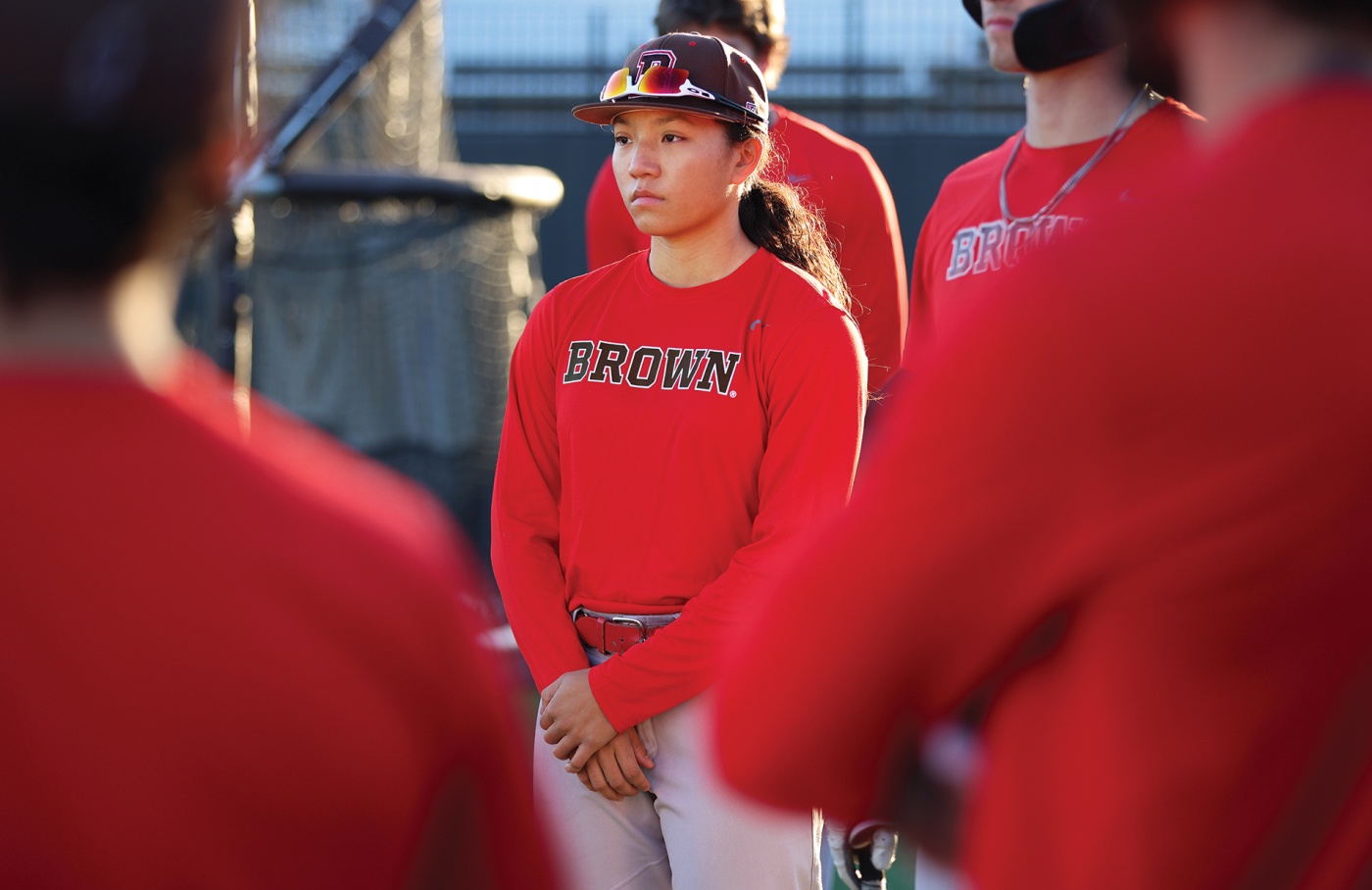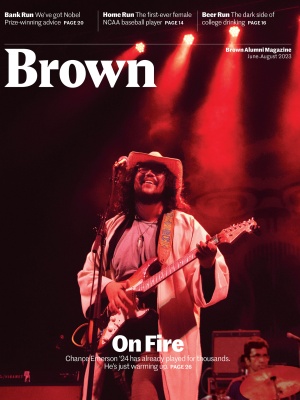Olivia Pichardo ’26, known to her parents, teammates, and coach simply as “Liv,” has been playing with boys for as long as she can remember. Except for that time when she was 14 and got invited to the selective girls’ MLB Breakthrough Series. “That was a surreal experience,” Pichardo says, “because I always grew up being the only [girl] on my team.”
After MLB, she was back to playing with boys—boys who were rapidly getting bigger, faster, and stronger. “It’s just a fact there is a biological disadvantage for women,” says Pichardo, a native of Queens, NY. “It’s a game of catch-up in terms of strength, which I think actually kind of helped me be stronger.”
“Baseball rewards the players for mechanics over strength every single time,” says her dad, Max Pichardo.
But as Pichardo continued to compete, her dad says, other parents began to voice disapproval. “It was very, very bizarre to have everyone—literally everyone—tell me, what are you doing, why are you making her play this sport, you know that there’s no girls playing in high school, there’s definitely no girls playing in college. There’s never been a girl playing professionally, so why are you wasting your time with this?” Max says. But she was holding her own, so he ignored the criticism.
Pichardo agrees: “It’s not like I have anything against softball,” she says. “I’ve just always been able to compete in baseball, so I saw no reason why I should switch.”
In July 2022, a few months before her arrival at Brown, Pichardo made the women’s National Baseball Team, competing side by side with women who were ten or more years older. “She didn’t skip a beat,” says Head Coach Veronica Alvarez. “She fit right in and was able to compete—and push them to be better, as well.”
Choosing Brown
Although Pichardo was recruited and offered athletic scholarships at several universities, she ultimately chose to attend Brown, where she was admitted through the regular student application process. She then reached out to baseball coach Grant Achilles to try out as a walk-on.
“From the beginning, the way [Pichardo] walked in, the way she carried herself, the way that she set her stuff down, it was clear that she was accustomed to a high level of baseball,” Achilles says. “That was only confirmed by her abilities throughout every portion of the tryout.”
Most of the players had never played with a woman before. But the transition has been remarkably smooth. On October 4, Achilles told the team that Pichardo was invited to join the spring roster. Brown released the news in November. She played her first DI game in March.
“Once [the other players] got over the initial hurdle of the awareness that a female player was with us, then she just became a baseball player,” Achilles says. “There were little nuances here and there, but she’s Liv.”
Raising the boats
While Pichardo, like most first-years, isn’t in the lineup every game, Achilles says she has significant potential. “Baseball is one of a few sports that can be an equalizer, for size, structure, or stature,” he says. And Pichardo, currently a utility player, contributes more than just baseball skills.
“The biggest thing she brings is how hard she works,” says team captain Jacob Burley ’23. “Just as the game’s gotten harder,” Achilles adds, “she’s gotten better. As the saying goes, a rising tide raises all boats. She is raising the boats around her.”
People have noticed—including the Red Sox. Pichardo threw the first pitch at Fenway on May 3.
Yet “every time that she steps on the field, especially with new players,” her dad says, “they always are going to question her ability to play this sport and whether she belongs in it.”
Indeed, from Alvarez’s perspective, Pichardo’s biggest challenge won’t be heckling or discrimination, which she’s been experiencing her entire life. It’s “the attention that she gets for having accomplished this, and the pressure [of] feeling like she’s representing an entire gender.”
“It’s really been a journey,” her dad says. “Not so much about baseball, but about what is in the unknown. What is on the other side of that border, that nobody wants to cross, and that seemingly nobody is allowed to go over.”






